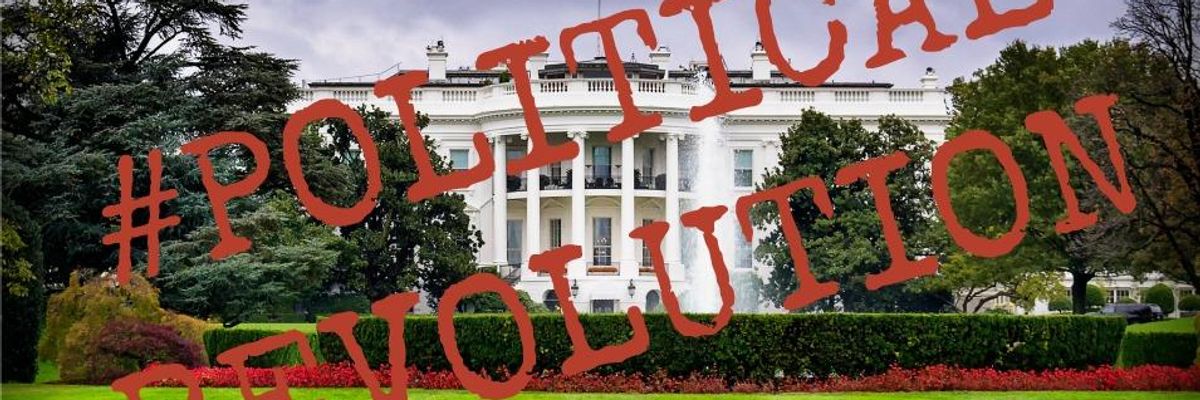At a recent dinner with my work team, I was reminded that I had said I wanted to travel less for work this year so I could focus on other projects. Instead, I find myself bouncing across the country campaigning for my friend who decided to run for president.
I first met Bernie Sanders in the 1980s, after he pulled off a surprising upset to be elected mayor of Burlington. Throughout his time as a public servant, Bernie has never abandoned his working-class roots, remaining unusually free of the peacocking strut that afflicts too many in high office. For example, he's not "Senator Sanders" but just "Bernie" -- as everyone calls him that. He lives modestly, flies coach class and considers $25 a major campaign donation. It's also worth noting that he has not used his official positions to get rich. While most people in Congress are millionaires, Sanders' financial net worth is in the six-figure range, one of the lowest of any senator.
Bernie happily calls himself a "democratic socialist," a loaded term that initially spooks many people. But as Vermonters (who keep electing him -- last time with more than 70 percent of the vote) have come to know from his actions and policies, and as the hundreds of thousands of people turning out to hear him are learning, the phrase essentially means being a feisty FDR populist, willing to take on the economic royalists (and welcoming "their hatred," as Roosevelt put it) in order to (in Bernie's words) "revitalize American democracy so that government works for all of us, not just the large campaign contributors."
For Bernie, the key word in democratic socialism is "democratic" -- rallying and organizing workaday people to reject the plutocratic corporate order and build "a society in which all people have a decent standard of living -- not a society in which a few people have incredible wealth while 47 million live in poverty."
For Bernie, the key word in democratic socialism is "democratic" -- rallying and organizing workaday people to reject the plutocratic corporate order and build "a society in which all people have a decent standard of living -- not a society in which a few people have incredible wealth while 47 million live in poverty." Sanders comes straight out of America's historic continuum of progressive boat-rockers: the pamphleteers, abolitionists, suffragists, Populists, unionists, Progressives, New Dealers, anti-war protesters, along with marchers for women's equality, gay rights, the environment and the civil rights movement.
Bernie himself was active in the civil rights movement as an organizer for Student Nonviolent Coordinating Committee, getting arrested at anti-segregation sit-ins, and participating the 1963 March on Washington. And his activism and fighting spirit carry on into today's struggles over inequality, oppression and corporate hegemony.
Bernie is serious about winning his run for the highest office. This is not a symbolic run to raise issues, nor is it an ego trip. "I am not running to fulfill some long-held ambition," he told Rolling Stone. "I never believed that I would ever become a mayor, a congressman or a United States senator (much less a president). ... I am running for one simple reason: This country today is facing extraordinary crises in terms of climate change, income and wealth inequality; in terms of a political system which is now corrupt and leading us toward oligarchy; in terms of the collapse of the middle class; in terms of more people in jail than any other country on Earth, and in terms of an immigration policy which is clearly completely broken. I just do not believe that establishment politics are going to address these issues. ... I do not say 'Elect Bernie Sanders, I'm going to solve all these problems.' We need millions of people to stand up and fight back." In other words, we need "a movement."
Sanders is as offended as the great majority of people are that Washington is so totally in the pockets of moneyed elites. Someone finally has to rebel, and no one had stepped forward, so he did. He's saying: Use me. I'll be your mechanism, your political tool in 2016 for building a democratic movement that can govern in the people's interest, rather than for the 1-percenters.
"My job," says Bernie, "is to activate people to fight for their rights and to force Congress to respond to the needs of working families." Bernie recognizes that the people's yearning for such a movement is what has created him as a presidential contender. He's not only aware of this basic truth, but he's turned it into an alter call, saying: "I can't do this. But we can."

